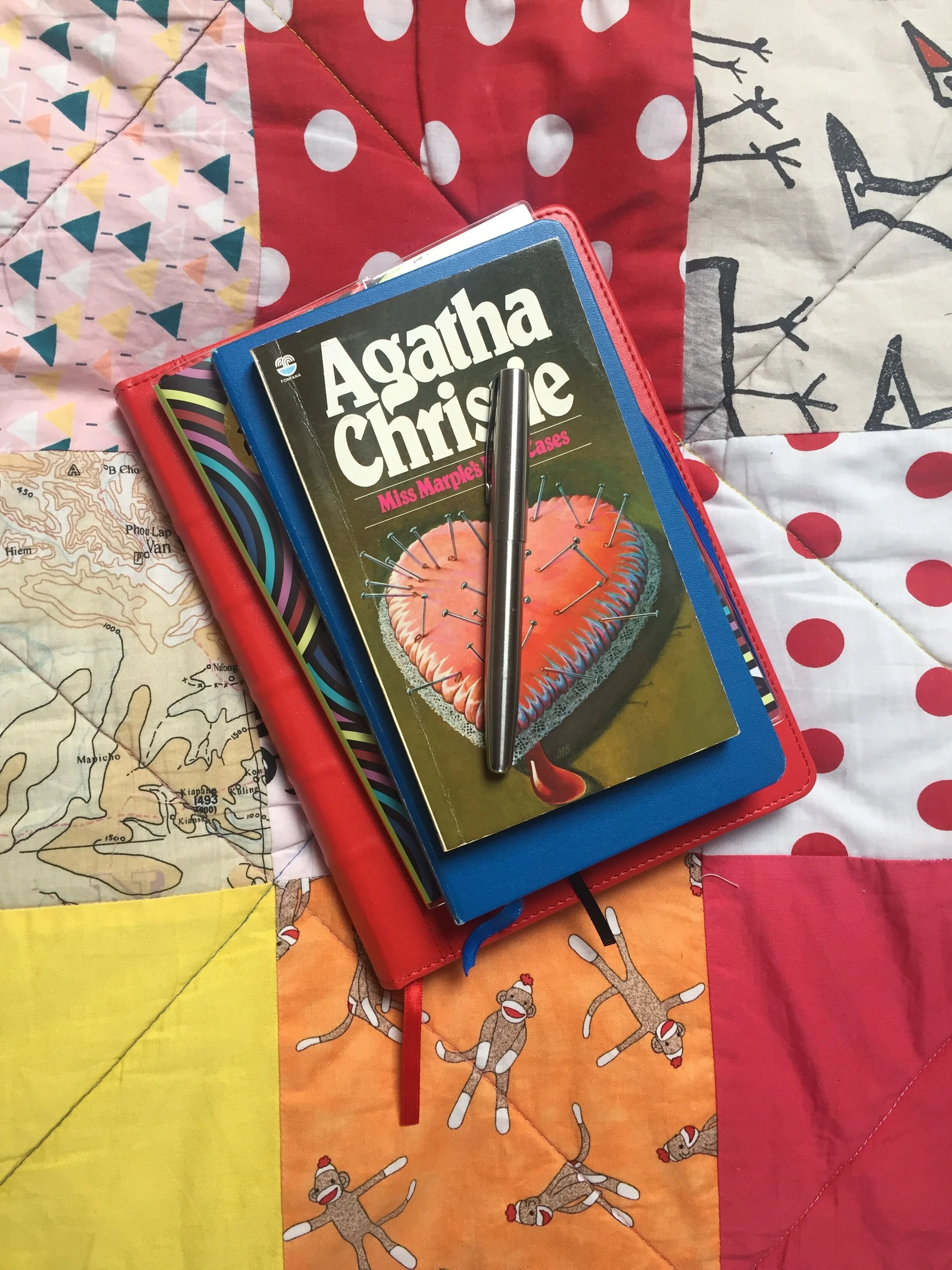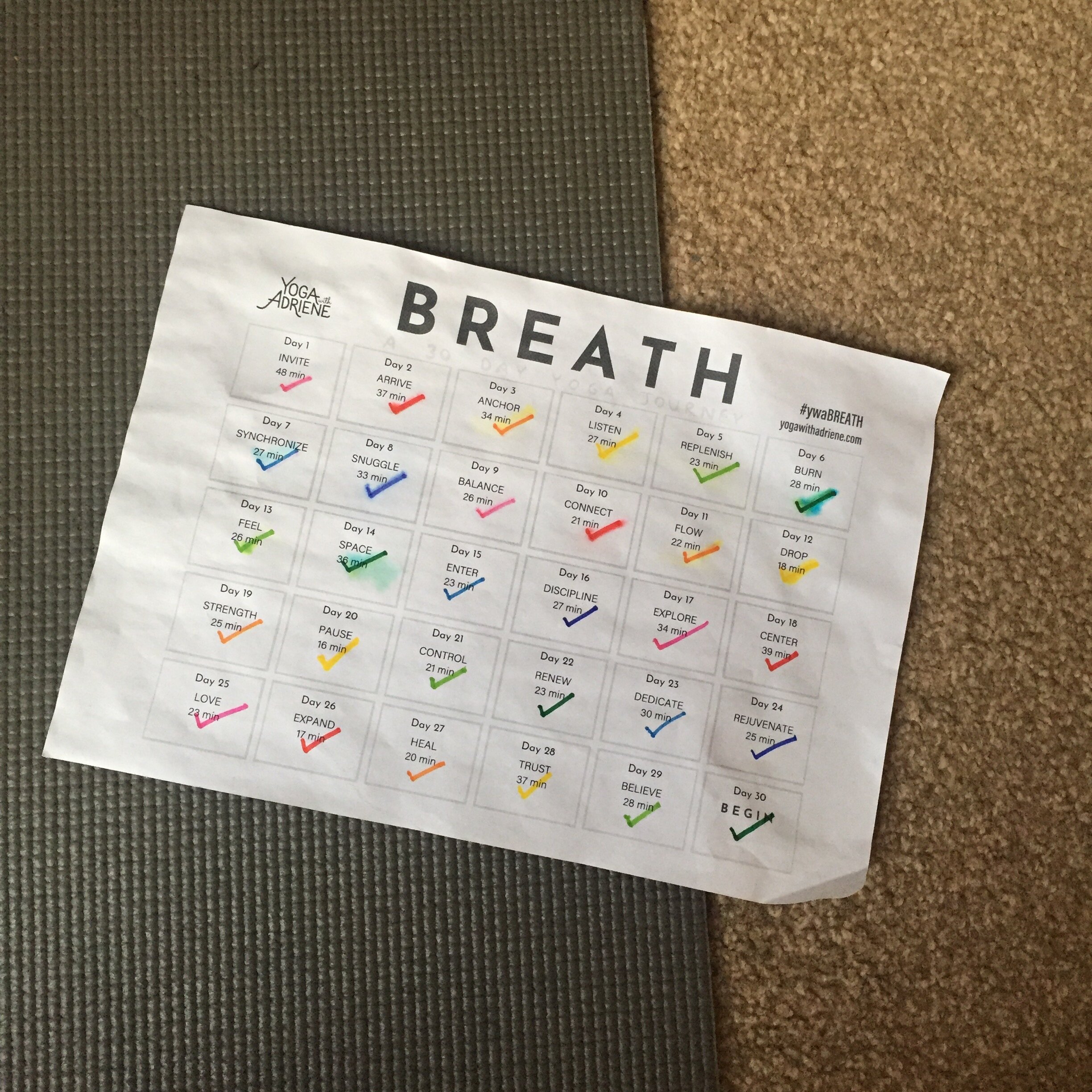The Habits that Hold Things Together
A previous bullet journal and pad where I brain-dumped every night.
On Tuesday, 26th January, I hit a milestone. I reached 365 days of writing a nightly brain dump in a journal. It hadn’t started out as that. It was meant to be a #100DaysOfWriting challenge, where I wrote something creative (hopefully part of the same project, but not necessarily so) on a hundred consecutive days. But because of when I ended up writing, the project morphed into a different practice (probably suggesting that it’s what my mind needed most, though possibly not).
The milestone of a year wasn’t the point, of course, and in some ways it’s weird that I kept marking the number of days in the journal when I intended to continue writing in it every night, sometimes taking up three or more pages; other times writing just a short paragraph. I suppose it fits with the obsession of apps trying to make users maintain their “streak” by checking in daily. (For example, I just achieved an “award” for getting to a 30-day “streak” in my meditation app, but because I have something of a bad habit of leaving it right to the end of the day, I missed one midnight cut off and now my streak is only two.)
I reached the ‘award’ of a thirty-day meditation streak in my app, then the goal increased twelve-fold, and now I’m back to a very meagre streak.
Reaching a year of bedtime scribbling made me think about the little practices I’ve set up, and why I do them. There are a number of rituals I have, including my nightly brain-dump, and most of them exist to try to keep my brain functioning well. There might be other advantages too, but looking after my mental health is the primary purpose of each of them. Most of them pre-date Covid-19, though some have undoubtedly become more important or gained a more specific place in my day as a result of lockdowns and restrictions.
Don’t get freaked out by the word ‘ritual’, by the way. No robes or solemn outfits are worn as part of my daily practices (unless pyjamas count), and no sacrifices have been made, except time. ’Ritual’ just seems right for some - but not all - of these things because they have a set time and place in my day, and because of their importance to me. Some have become habits and it would be hard for me not to do them. Others, like meditation and yoga, are practices that I always tend to resist and can struggle to maintain, but when I don’t, I start to feel the negative effects slowly creep in.
Here are my practices:
Limited caffeine: one cup of caffeinated tea per day, usually drunk first thing when I get up. It’s to help me sleep better, especially since I’m prone to sleep paralysis and the accompanying hypnagogic hallucinations.
Drink water: I almost always have a bottle of water with me, wherever I am. It’s got to the point where I reach for my bottle even when it’s not there, and can become a bit anxious if I don’t have water on hand. Dehydration is bad for everything.
Vitamins and minerals: I take multivitamins and minerals (including iron), and extra Vitamin D. If I can manage to get my hands on vegetarian Omega 3, I take that as well. This may seem like a physical health thing, but the effects of anaemia or Vitamin D deficiency can cause fatigue and low mood, and I’d rather know they aren’t the reason if I’m feeling particularly tired or down.
Wash up: If there’s a certain amount of washing up waiting to be done, it starts to nibble away at me. Doing the washing up makes me feel disproportionately more competent and at ease.
Showering: utterly necessary or I start to feel uncomfortable in my own skin, and all my plans go awry.
Yoga: stretching is compulsory. I feel much better when I do it, but it’s ridiculously hard to get myself to actually do it. I’ve no idea why I resist it so much.
Bullet journal: this is crucial. It’s essentially a ‘to do’ list in a book, with a page for each day. If you do a Google search, you’ll see that some people go to extreme lengths to make their bullet journals as colourful and attractive as possible, usually involving stickers and collage and all that stuff. I’ve been bullet journalling for over five years, and any non-essential elements have disappeared. Each night, I tick off what I have done in the day, write the new to dos for the next day (including whatever might need to be carried over). I then do a bit of a gratitude diary at the bottom of the current day’s page. It’s brilliant. If I don’t do this, my mind will keep turning over and cycling through what I need to remember to do the next day, making sleep that much more elusive.
Journal: It might be a few lines or it could be a long account of something that’s happened or a strange dream I had. It’s a place where I can put the last bits of whatever rubbish my mind is holding onto at the end of the day.
Meditation: I know mindfulness is meant to turn your brain on, but meditating helps mine turn away from real world worries, or it can help me realise what I’m troubled by. I just seem to sleep better when I meditate before bed.
Read: stories seem to help my brain switch off. Short stories (and short short stories, at that) are best, but whodunnits can be dreadful, because I just keep reading.
There are other things that I wish I could put down here, like my intention to go outside every day for a walk or a run, or doing some sort of creative activity every day, but I’d be lying if I added them. While they’d help me enormously, they are by no means regular habits.
I managed to do some yoga every day in January, thanks to Yoga with Adriene. I’ve been far, far less consistent so far this month.
Research
What things do you do to keep yourself on some sort of keel? I’m keen to know what regular practices other people have, and I’ve created a Google Form to collect responses. It’s completely anonymous, and doesn’t ask for any personal information, and it will take about a minute to complete unless you really want to add extra detail (which I’d love, so please feel free!).
Hopefully, with enough responses, I can generate some sorts of findings and attempts at representing the data in impressive, colourful ways. You can find the form here. Thanks in advance.
Newsletter
At the end of every month, I send out a newsletter. It features a quick blog round-up, behind-the-scenes details, progress updates, pictures and oversharing. You can sign up here.









